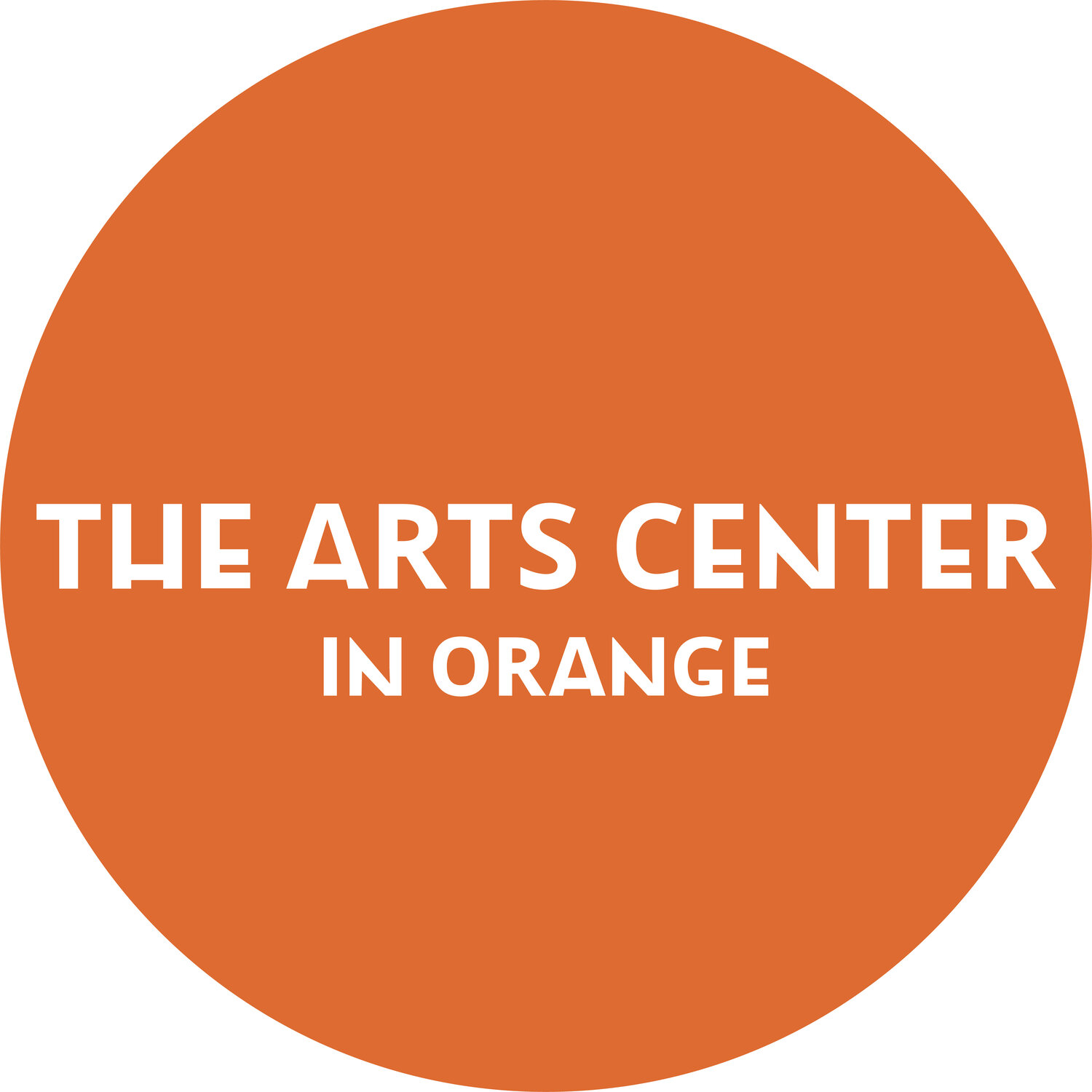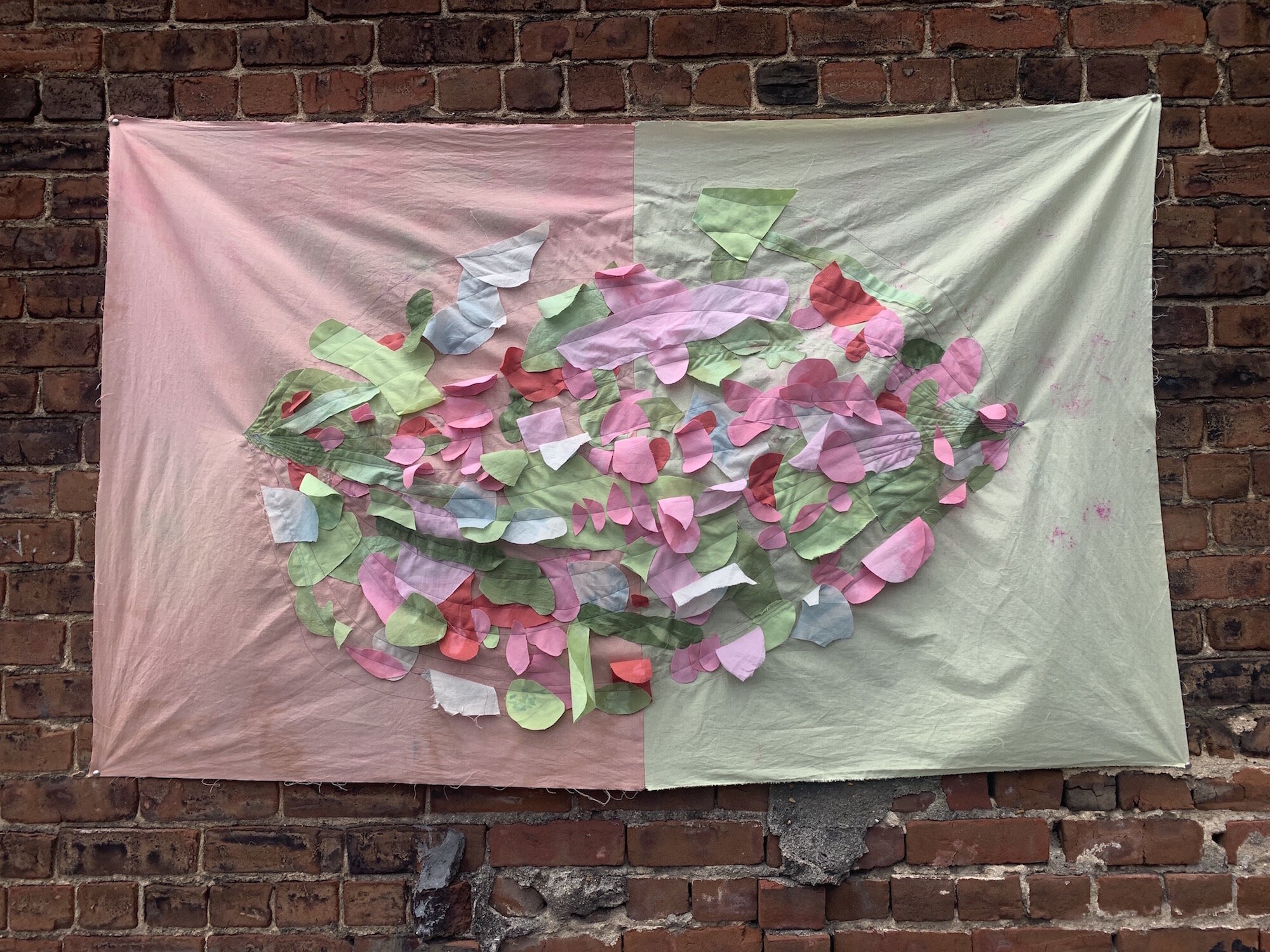
SOCIAL
RELATIVITY
ONLINE EXHIBITION
August 13 - September 25, 2020
Artworks by Brandi Walker and Carol Egan
Curated by Helen Thompson
CAROLINE
EGAN
With Grammom 1, 2020
Muslin, thread
3 1/2 x 6 ft
CAROLINE
EGAN
With Grammom 2, 2020
Muslin, thread
3 1/2 x 6 ft
CAROLINE
EGAN
our shadow, 2020
Shower curtain, thread, mixed media
4 1/2 x 6 ft
BRANDI
WALKER
Home Sweet Home, 2019
Multimedia sculpture
10 x 7 x 2 feet
BRANDI
WALKER
Tiffany’s Lamps, 2019
Resin, paint, brass, and lighting hardware
Dimensions variable
SOCIAL RELATIVITY HELEN THOMPSON
We all have roots; each of us is influenced by the environment in which we were raised. We are a meld of our experiences, vulnerable to the influences of those around us. We come to expect certain things as a result of how we were raised, and our upbringing continues to affect us once we enter a world of people with their own unique experiences. This exhibit explores artwork that results from varying experiences, how there is unity in difference, and how, even when we are faced with something that seems so new or strange to us, we can all say that at one point we have had a similar feeling. Both artists participating in this exhibition use their childhood experiences and relationships with their families as inspiration for their works, letting us view the emotional impact their childhood continues to have on them.
Caroline Egan’s works call on a movement somewhat reminiscent of the past. By venturing into textiles, the artist felt she could not avoid connections to the Arts and Crafts Movement. Brandi Walker’s works embrace a Surrealist sense of limited reality, creating works that interpret reality and personal experiences in new forms. Both artists' works fall within the Contemporary Art Movement, which governs a wide range of styles. Contemporary art often attempts to create a narrative that deals with human relationships, whether it be on individual or large scale, often hitting on more personal and intimate depictions. Brandi Walker and Caroline Egan both use their recent work as a commentary on their familial relationships and how their experiences with their family members shaped them.
“...this could be a positive, minor shift, such as a simple affirmation of a connection, an assignation, or coordinated plan. It could be negative—a disappointment, betrayal, or serious violation of trust.”
The concept of social relativity is a broad designation. In part, it speaks to one person's relation to another, but it also speaks to the power behind one person’s effect on another and vice versa. In U.T. Place’s article “On the Social Relativity of Truth and the Analytic/Synthetic Distinction”, the author notes that in order for a truth to be considered true, one person must agree with another, and the same goes for something to be considered false, basically an oxymoron (1). In the case of this exhibition, our focus is more closely drawn to the conclusions of Johanna Drucker in her book The General Theory of Social Relativity, in which Drucker closely examines the intricate interactions between human and non-human actants. By analyzing various forces, the author provides us with an in-depth look at possible situations that can shape a person overtime. Drucker states that a key aspect of the theory of social relativity is the importance of an “event” which is marked by a shift in a relationship. According to Drucker “this could be a positive, minor shift, such as a simple affirmation of a connection, an assignation, or coordinated plan. It could be negative—a disappointment, betrayal, or serious violation of trust.”(2) Simply put, everything that happens to an individual, big or small, has some kind of an affect that can shape them in the long term. The artworks in this exhibition venture into the artists’ personal experiences and the long-term effects events from their childhoods have on them today. Whether positive or negative, both artists seek to invoke empathy in the viewer.
(1) Place, U. T. 1991. “On the Social Relativity of Truth and the Analytic/Synthetic Distinction.” Human Studies 14 (4): 265–85. doi:10.1007/BF02205609.
(2) Drucker, Johanna. The General Theory of Social Relativity. Vancouver, British Columbia: The Elephants Ltd., 2018.
SOCIAL RELATIVITY
ONLINE PROGRAM
ARTIST
TALK
FRIDAY SEPTEMBER 18th, 2020
Originally broadcast via Instagram Live
Guest Curator Helen Thompson in conversation with Artists Caroline Egan and Brandi Walker
Caroline
Egan
Artist
Caroline Egan is a recent graduate of VCUarts with a Bachelor of Fine Arts in Painting + Printmaking. The artist's inspiration comes from finding a connection with her grandmother through the act of sewing on the same machine her grandmother used prior to her passing. In her current practice, she is beginning to relearn/rediscover a new relationship with her grandmother who has recently passed away through the act of sewing with the sewing machine and thread she once used. Each time Egan sits in front of her machine, she is overcome by healing, meditation, and reverance that drives her collaboration with Grammom, and she looks forward with hope to learn from her as they continue on together.
Brandi
Walker
Artist
Brandi Walker's work is a personal exploration of trauma and internal conflict that occurred during adolescence and early adulthood. Recent work references the house her grandfather built in 1974, which was a home to both Walker's father and later herself. This location has acted as both a source of comfort and, later, a site of anguish. Walker is interested in using visual references from this site as a form of psychoanalysis of her secondary experience with PTSD and psychosis, as well as emotional and physical abandonment of the mother. Through the use of interactive and/or surreal installations, Brandi attempts to analyze and metaphorize elements of psychosis, paranoia, abandonment, childhood trauma, and the abrupt transition from adolescence to adulthood.
Helen
Thompson
Curator
Helen Thompson is a Senior at Virginia Tech, majoring in Art History. She grew up in Orange, Virginia and has been involved in the community for most of her life through volunteer work and assisting her late mother Laura Thompson, the previous Executive Director of The Arts Center In Orange. Her current plans are to work in a Gallery or Museum setting, and possibly go on to further her education in Art History. She recently interned with the Taubman Museum and in her teen years worked as an apprentice to a Clocksmith. Her family, community, and professors have further inspired her belief that an appreciation for the arts is crucial to a well-balanced society. In her spare time she enjoys going on adventures with her intelligent yet peculiar German Shepherd, working on her drawing abilities, and baking more pies than she can eat.
Social Relativity is supported in part by the Virginia Commission for the Arts and the National Endowment for the Arts.





















